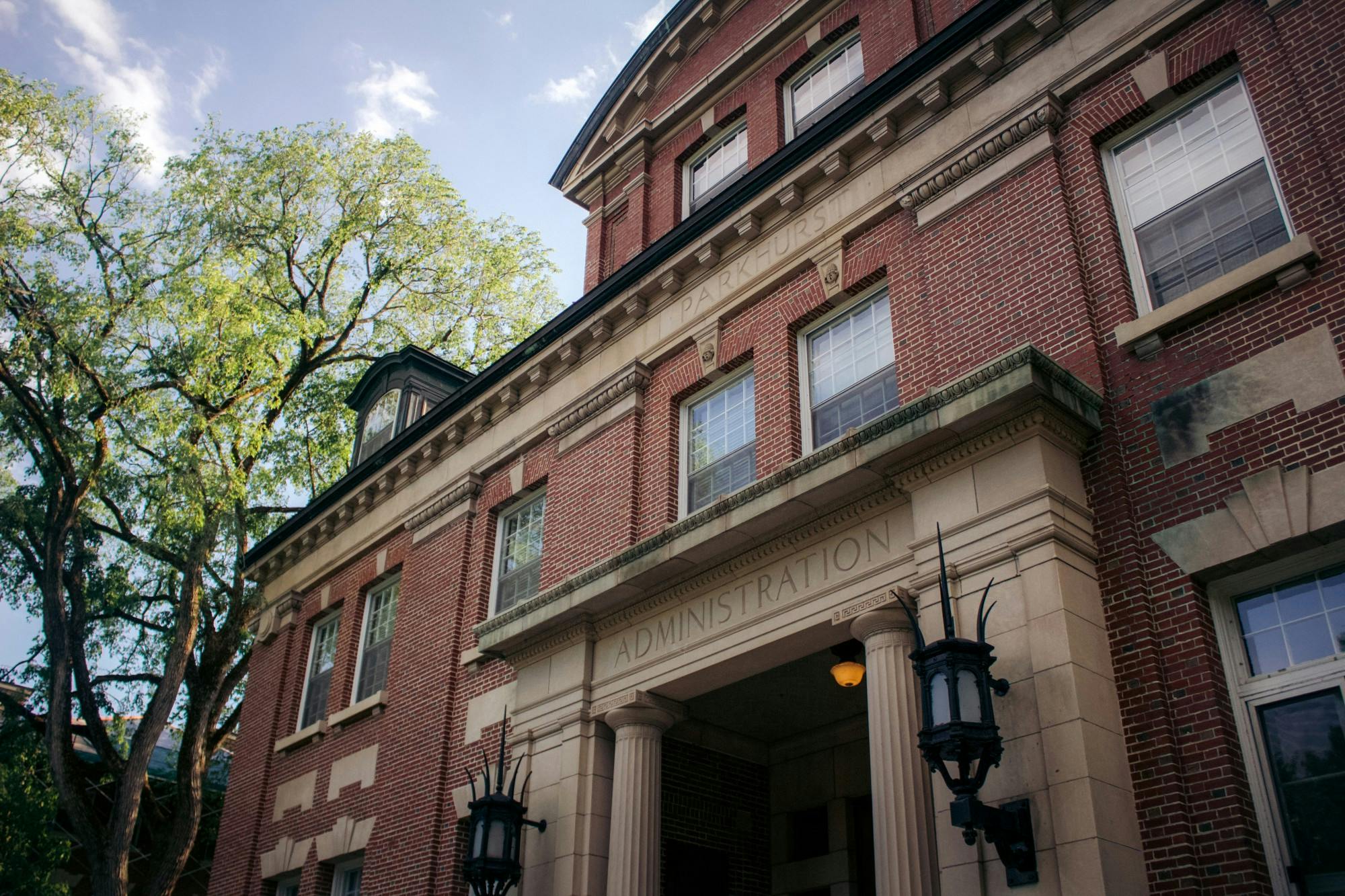The College officially reinstated its indoor mask mandate Thursday, following new recommendations by the Centers for Disease Control and Prevention and similar measures adopted by the town of Hanover due to the spread of the COVID-19 Delta variant. However, as of now, physical distancing and restrictions on gathering size will not be imposed, nor will the outdoor masking requirement be reinstated, according to interim provost David Kotz.
“The primary driver for me behind having this masking requirement come back is the people in our community who cannot be vaccinated and the vulnerability of those people,” Kotz said. “There are people who have medical conditions or religious beliefs that prevent them from being vaccinated.”
Kotz added that various faculty and staff have children under the age of 12, who are not yet approved to receive a vaccine.
As of Wednesday, there were three active student cases and seven active faculty and staff cases on campus, according to the College’s COVID-19 dashboard. Eight of the active cases have been detected since Aug. 1.
The vaccination rate among the on-campus community is 93%, according to the dashboard, and the vaccination rate among the overall community is 82%.
Rockefeller Center for Public Policy policy fellow Anne Sosin, who studies public health and health equity issues in rural New England, said that the Delta variant is “highly, highly transmissible” and “spreads like wildfire, especially among unvaccinated people.”
“While vaccines remain highly effective at preventing severe illness and death, they are less effective at preventing breakthrough infections, and also transmission between people,” Sosin said. “Our concern is really that someone who was vaccinated is not only able to get infected but can transmit to both unvaccinated and vaccinated people.”
She cited a recent COVID-19 outbreak in Provincetown, Massachusetts as one example of a situation that helped inform the change in CDC guidelines. In the weeks following the July 4 weekend, the heavily vaccinated community nonetheless saw hundreds of mostly asymptomatic cases among vaccinated people — though, notably, only saw seven hospitalizations and zero deaths, the New York Times reported.
Sosin said she thinks that dropping masking entirely is “fantastical,” as in the absence of all mitigation measures, an outbreak would be “highly concerning” and pose a threat to both health and education continuity. She explained that she thinks that masking is warranted in classroom settings where students are interacting with members of the outside community, such as professors who may have children.
However, Eric Lee ’23 said that he is “very disappointed” with the reinstatement of the mask mandate.
“Considering that over 90% of us are vaccinated and we’ve had very few COVID cases, I don’t really think that it’s in line with what we should be doing,” Lee said.
Lee added this was a sentiment shared by several of his peers, who are worried that the College’s actions “signify a willingness to go into lockdown or to send people home.” He said he thinks that Dartmouth’s rural location and high vaccination rates would obviate the need for the mandates instituted by peer institutions and expressed his desire to see the College “fully reopen, full steam ahead” for the fall.
Grafton County is currently classified by the CDC as experiencing “substantial” community transmission as of Thursday, an update from the previous week, when it was classified as experiencing “moderate” community transmission. The CDC guidance that fully vaccinated individuals should mask in indoor public areas applies to counties experiencing “substantial” or “high” transmission.
In an email at the beginning of summer, the College announced the removal of the mask mandate and the disbanding of the COVID-19 Task Force. According to an emailed statement from College spokesperson Diana Lawrence, a core group of Task Force members — including former co-chairs Lisa Adams and Josh Keniston — continues to meet, even though the broader task force has been dissolved as of Aug. 1.
Hanover health officer Michael Hinsley noted several days before the new masking rules were announced that the Task Force facilitated communication and cooperation among the various schools on campus.
“The communication from the Task Force [also] really helped the town make decisions that were in concert with the College,” Hinsley said.
Hinsley added that the town is still in regular contact with the Dartmouth Health Service and affirmed his commitment to remain in touch moving into the fall term.
Looking ahead to the upcoming term, Kotz said that the College hopes to increase the pace of testing to have vaccinated students tested once a week.
Sosin said she thinks that a more conservative approach on the part of the College may be warranted going forward.
“We really need forward-looking policy,” Sosin said. “It’s better for us to anticipate changes in conditions and build policy around that than it is for us to be in a position where we have to rapidly react and shift course. I think that we should have some humility as we go into the fall.”





